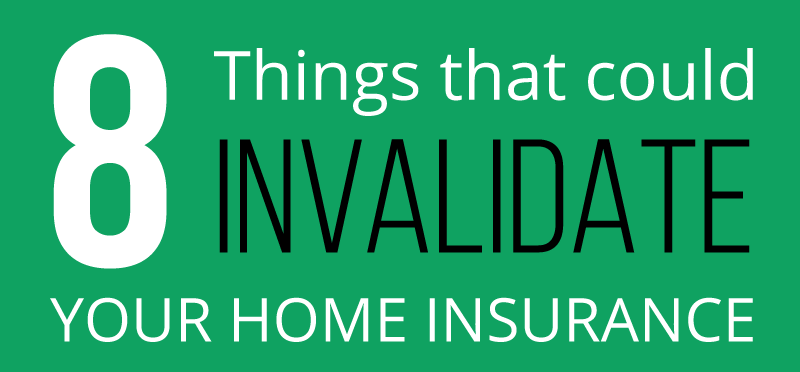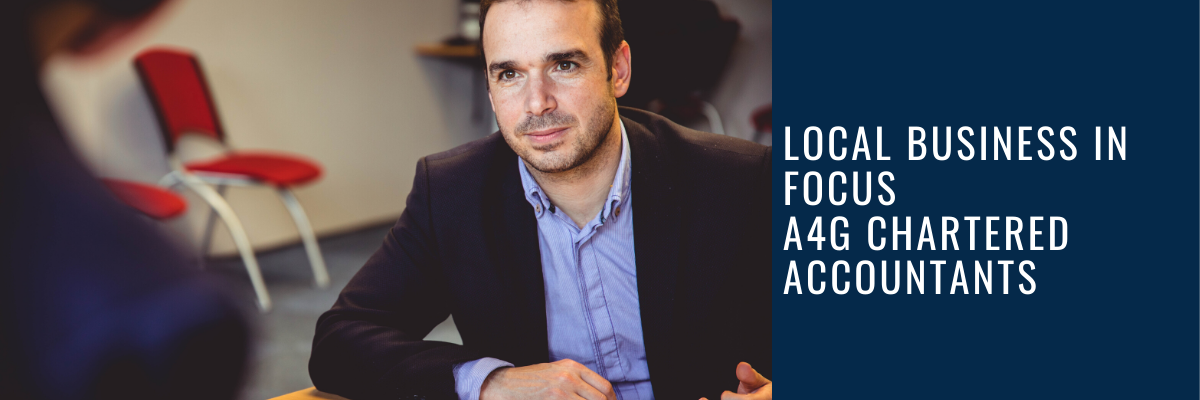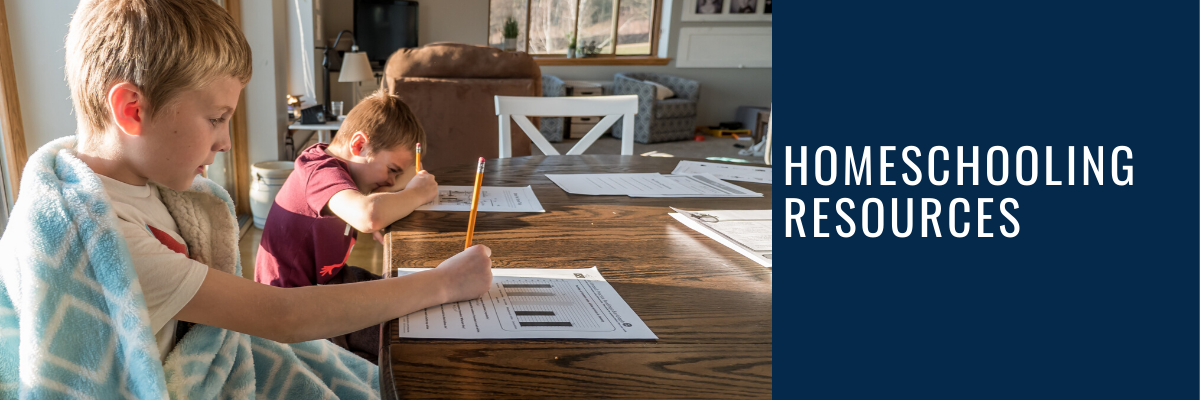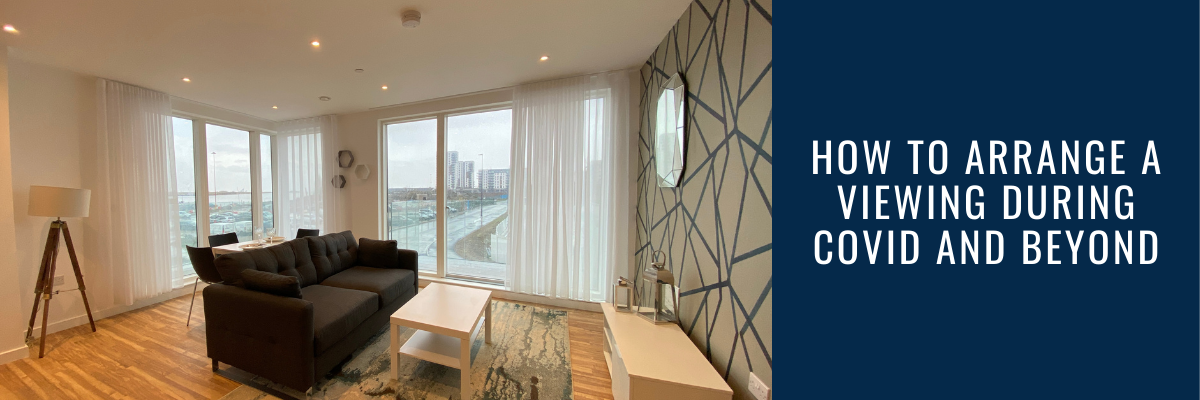As the old saying goes, “An Englishman’s home is his castle” so getting home insurance can provide real peace of mind. Knowing that you’ve got financial cover should the worst happen is a big relief for any homeowner.
But have you taken the time to scrutinise the small print? Most people just scan through the headlines and don’t really know the exclusions which are tucked away in the terms and conditions. To give you a better idea of what to look out for, here’s a run through of four things which could invalidate your home insurance - and that you probably never knew about.

1. Renovations And Building Work
Rather than buying a new house when more space is needed, many homeowners are opting to renovate their existing property, with 2-in-5 Brits choosing to build an extension, instead of moving house. Whether it’s major structural changes or just a small bit of work, you’ll need to tell your insurers what’s going on.
If you’re just painting some cupboards or putting in some new units, your insurer won’t need to know. By contrast, if there’s any kind of work being done which introduces new risks or increases the cost of rebuilding your insurer may need to alter your cover.
You may have to pay a little bit more to reflect the changes to your property but don’t think about not telling your insurer as it’s not worth the risk. If you’ve had work carried out and didn’t inform them, in the event of a claim they may refuse to pay.
When the plans for the building work are being drawn up, it is essential to check whether the completed works will infringe on adjoining properties’ light (specialist Surveyors are able to advise you on this).
If neighbouring properties have enjoyed a certain amount of natural light to their property (or a certain room within their property) continuously for 20 years or over, they will have acquired a “right to light” and are potentially be able to claim compensation.
As a worst case scenario they may be able to obtain an injunction from the courts to prevent, de-scale or demolish your development in the event that their natural light is severely impacted. A key way of mitigating your monetary loss is by obtaining Right to Light insurance, which will cover you for any financial damages to incur in the event of a claim.
On the subject of building work and renovations, there may also be restrictions on your contents. With unknown builders traipsing in and out of your home and security less tight than usual, any valuables that aren’t locked away are unlikely to be covered. Many insurers stipulate that there must be signs of forced entry into a locked drawer or cupboard for a claim for missing valuables to be considered. If they’re normally out on display, lock them away for the duration of the building work.
2. Leaving The Property Empty
Taking occasional trips away and enjoying holidays is all part of life, and insurers understand this. Policies are priced to include these types of activities and you won’t fall foul of the rules if you’re just taking a regular holiday.
Longer absences are less common and your insurer will want to know if you’re planning on leaving your property unattended for a prolonged period. The exact length of time varies between insurers, but a good rule of thumb is if you expect to be away for 30 days or more, you’ll need to tell your insurer. If you don’t and you suffer any kind of loss, your home insurance could be invalid, meaning you won’t be able to make a claim.
Insurers will cover longer absences but they may require you to take out unoccupied property insurance. Holidays can be one reason for this, but the death of a homeowner can be another. Administering the Will and sorting out Probate can be time-consuming so if the property is going to be empty for more than 30 days, Unoccupied Property Insurance is needed.
3. Holiday Selfies On Social Media
Holiday snaps are a great way to create lasting memories and with the current trend for selfies, posting your pictures on social media may seem like a great idea. Sharing photos on sites such as Instagram and Facebook allows your family and friends to enjoy your adventure as it happens rather than waiting until you return home.
However, did you know that insurers may take a very dim view of your social media posts - and could even decline a claim as a result?
This is because statistics suggest a link between social media posts showing holiday photos and an increase in the number of burglaries. One study showed one in twelve burglaries occurred after homeowners posted about their holiday location on social media.
The government, police forces around the country and the Financial Ombudsman have all issued warnings about the risks of sharing holidays on unrestricted social media.
If you look at the small print of your policy, you probably won’t find anything specific mentioned. The clause insurers may rely on is “taking reasonable care” - they could argue that sharing your location is a breach of your responsibilities.
4. Changes To Security Measures
When you take out home insurance you’ll be asked a whole host of questions about the structure of the property as well as the various security measures you have in place. Your premium will be based on the answers you give so if anything changes you must tell your insurer.
Changes to security may not be immediately apparent so you’ll need to try and think like an insurer. For example, if you get a dog and install a dog flap, it may not even cross your mind that it could compromise your security. Not all insurers would invalidate a policy based on this change but it’s important to check.
Getting a new door or changing the locks is more common and can mean the security for your home is different than when you took out the insurance. Hopefully your security will be increased, not lessened and that could mean cheaper premiums for you! Make sure you tell your insurer if the composition of your doors or windows change (as there may be a need for FENSA insurance) or if you have different locks on either.
5. Renting Out A Room
You might be thinking about renting out a spare room to a lodger as a great way of making a little extra income. Around 3% of households in the UK are now doing precisely this. However, before you do, make sure that you’ve checked the small print of your insurance policy and called your insurer’s first. Many companies won’t offer policies to anyone who rents out part of their property.
There are some which will cover partially rented properties, but you must let the insurer know before renting out rooms to tenants. Insurers see rented rooms as a risk – after all, you’re entrusting your possessions and home to somebody you don’t fully know. Your policy could be invalidated if you fail to tell your insurers know before a lodger moves in.
6. Installing A Dog Flap
You don’t need to tell your home insurance company every time you get a new pet, but you should definitely let them know if you install a dog flap so your furry friend can get in and out of the house. This is a common change that many homeowners overlook when thinking about things which invalidate their policy.
A number of insurers view cat dog flaps as a risk since they deem that it makes the door less secure. They may therefore require you to pay an additional premium after you make this change.
7. Exaggerating The Value Of The Contents Of Your Home
Most people are unaware of the precise value of their home contents, so it’s no wonder that resorting to guesswork is all too common when it comes to making a home insurance application. However, if you accidentally (or even deliberately) over-inflate the value of the contents of your property, this could cause you a lot of problems in the long term.
You should always take the time to correctly value all your possessions – the average value of a UK household’s content is around £35,000. You shouldn’t just assume that it won’t make any difference in the event that you have to claim. It could cost you dearly if your insurance is invalidated.
8. Failing To Lock The Doors And Windows
It can be all too easy to go out and forget to make sure that the windows have been locked, but it’s something you need to check every time you leave your home. For most insurers, it isn’t enough to ensure that your doors and windows are closed when you’re not in your property, they need to be properly locked and secured too.
According to statistics, 15% of burglars enter properties through unlocked windows. If you have a lock system or burglar alarm installed in your property, you also need to ensure that they are working properly and are activated. If burglars are able to enter your property unforced, the policy will usually be invalidated.
This article and infographic was provided by Lawsure Insurance to find out more about their services click here



 By
By 
 By
By 


Share this with
Email
Facebook
Messenger
Twitter
Pinterest
LinkedIn
Copy this link